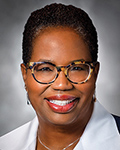If not you, then who? If not now, when? - The Role of Faculty in Redesigning Engineering Education
The Role of Faculty in Redesigning Engineering Education
-
 1. The Role of Faculty in Redesig…
0
00:00/00:00
1. The Role of Faculty in Redesig…
0
00:00/00:00 -
 2. My Journey Through Academia
168.6353019686353
00:00/00:00
2. My Journey Through Academia
168.6353019686353
00:00/00:00 -
 3. My Journey Through Academic Le…
205.03837170503837
00:00/00:00
3. My Journey Through Academic Le…
205.03837170503837
00:00/00:00 -
 4. My Professional Network
239.3727060393727
00:00/00:00
4. My Professional Network
239.3727060393727
00:00/00:00 -
 5. No Shortage of Motivation
262.49582916249585
00:00/00:00
5. No Shortage of Motivation
262.49582916249585
00:00/00:00 -
 6. Wicked Problem
297.5975975975976
00:00/00:00
6. Wicked Problem
297.5975975975976
00:00/00:00 -
 7. Untitled
341.27460794127461
00:00/00:00
7. Untitled
341.27460794127461
00:00/00:00 -
 8. Transportation System
378.01134467801137
00:00/00:00
8. Transportation System
378.01134467801137
00:00/00:00 -
 9. Convergence
425.32532532532537
00:00/00:00
9. Convergence
425.32532532532537
00:00/00:00 -
 10. Call to Action
528.294961628295
00:00/00:00
10. Call to Action
528.294961628295
00:00/00:00 -
 11. Circle of Concern
563.596930263597
00:00/00:00
11. Circle of Concern
563.596930263597
00:00/00:00 -
 12. Circle of Influence
626.19285952619293
00:00/00:00
12. Circle of Influence
626.19285952619293
00:00/00:00 -
 13. Proactive Focus/Reactive Focus
648.948948948949
00:00/00:00
13. Proactive Focus/Reactive Focus
648.948948948949
00:00/00:00 -
 14. Circle of Concern
708.34167500834167
00:00/00:00
14. Circle of Concern
708.34167500834167
00:00/00:00 -
 15. Circle of Control
710.17684351017692
00:00/00:00
15. Circle of Control
710.17684351017692
00:00/00:00 -
 16. Department Head/Chair & Dean R…
825.55889222555891
00:00/00:00
16. Department Head/Chair & Dean R…
825.55889222555891
00:00/00:00 -
 17. Untitled
864.83149816483149
00:00/00:00
17. Untitled
864.83149816483149
00:00/00:00 -
 18. Bridging
881.14781448114786
00:00/00:00
18. Bridging
881.14781448114786
00:00/00:00 -
 19. How do we bridge the divide?
956.12278945612286
00:00/00:00
19. How do we bridge the divide?
956.12278945612286
00:00/00:00 -
 20. The Problem-Solving Process
1040.9075742409077
00:00/00:00
20. The Problem-Solving Process
1040.9075742409077
00:00/00:00 -
 21. The Innovation Cycle of Educat…
1259.7263930597264
00:00/00:00
21. The Innovation Cycle of Educat…
1259.7263930597264
00:00/00:00 -
 22. What's your Legacy?
1335.7691024357691
00:00/00:00
22. What's your Legacy?
1335.7691024357691
00:00/00:00 -
 23. Mahatma Gandhi
1369.235902569236
00:00/00:00
23. Mahatma Gandhi
1369.235902569236
00:00/00:00 -
 24. Shirley Chisholm
1419.1858525191858
00:00/00:00
24. Shirley Chisholm
1419.1858525191858
00:00/00:00 -
 25. Feel free to pick my brain…
1451.1177844511178
00:00/00:00
25. Feel free to pick my brain…
1451.1177844511178
00:00/00:00
 Dr. Stephanie G. Adams is the 5th Dean of the Eric Jonsson School of Engineering and Computer Science at the University of Texas, Dallas and Past President of the American Society of Engineering Education. Dr. Adams has held faculty and administrative positions at Old Dominion University, Virginia Tech, Virginia Commonwealth University and the University of Nebraska-Lincoln.
Dr. Stephanie G. Adams is the 5th Dean of the Eric Jonsson School of Engineering and Computer Science at the University of Texas, Dallas and Past President of the American Society of Engineering Education. Dr. Adams has held faculty and administrative positions at Old Dominion University, Virginia Tech, Virginia Commonwealth University and the University of Nebraska-Lincoln.






